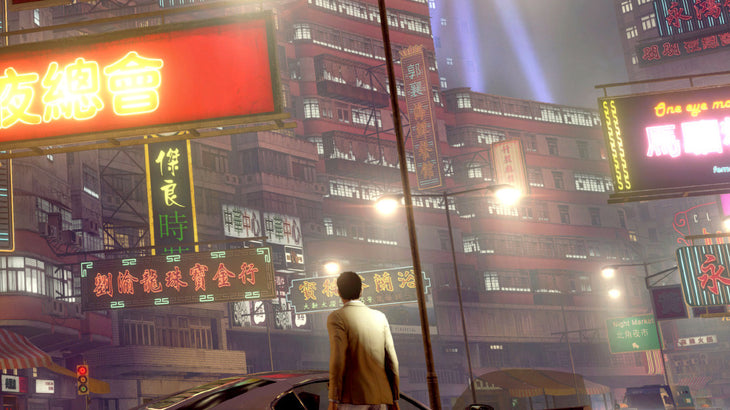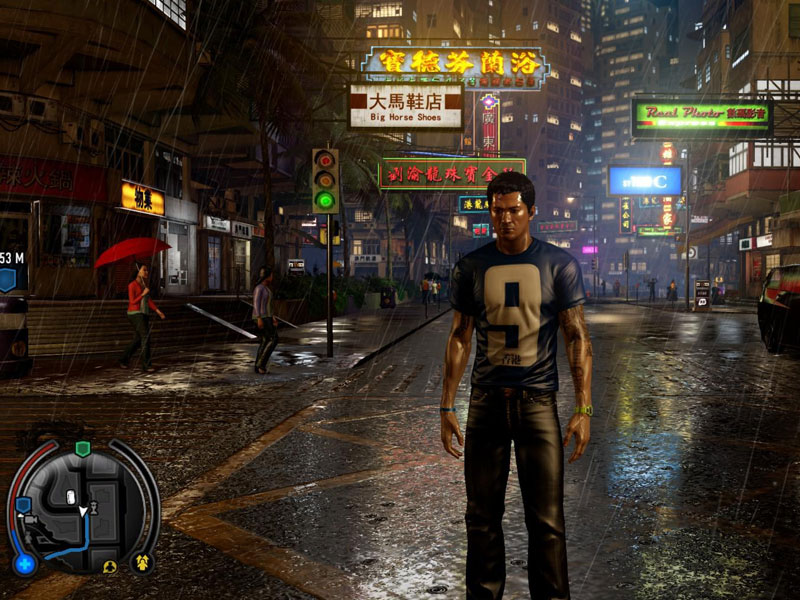

To start with writing, there is a lot of influence from other Hong Kong crime stories here, and though Sleeping Dogs never takes itself as seriously as Oldboy or The Man From Nowhere, the setup for the action and the style in which it is presented is intriguing. This is all thanks to both the decent writing that’s often self-aware of its source material and the (mostly) solid voice acting. By the end of the game, I had a pretty good idea of who the villain was, but I was nonetheless excited to see them get what they deserved. I found myself anxious at certain important segments and I would often stop the car as I neared an objective marker so that I could hear the conversations between Wei and the passenger in its entirety. There isn’t much in the way of actual surprises in the game but I was thoroughly invested the entire time. Over the course of the 15-hour campaign Wei, and consequently the player, will be kicking butt, taking names, and having a crisis of identities. You play as Wei Shen, an undercover cop who’s trying to infiltrate the Hong Kong triad to bring them down.

The story of Sleeping Dogs has just the right amount of street races and dialogue about family to make Dominic Toretto happy. It was after this change of publishers that the game shed its old title, and Sleeping Dogs was born. But soon afterward, Activision shut down the project and Square Enix, seeing the potential in what United Front Games was working on, bought the rights, and funded the game’s completion.
SLEEPING DOGS DEFINITIVE EDITION PC REVIEW SERIES
When it was first revealed the game was called True Crime: Hong Kong, a continuation of the True Crime game series that started with True Crime: Streets of LA in 2003. UFG took over development pretty early on and they buckled down to make a unique open-world game set in Hong Kong and inspired by its culture.

Developed by Vancouver-based studio United Front Games and published by Square Enix, the game was originally conceived by Treyarch, home of the Call of Duty: Black Ops series, under the funding of Activision. While games like Saints Row have evolved over a few iterations to carve out their own niche and differentiate themselves, a lot of sandbox games get swept up by the current of constant game releases, only bubbling up at the mention of some fan who remembers it fondly. This is at no fault to the chart-busting franchise and its developers and is simply a byproduct of its popularity. Whenever a new open-world sandbox game comes out it’s inevitably compared to Grand Theft Auto.


 0 kommentar(er)
0 kommentar(er)
